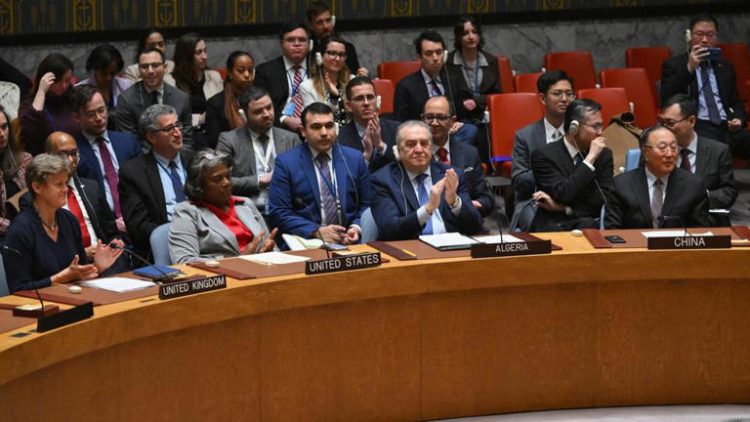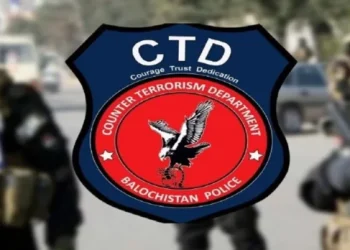By Salim Siddiqui
NEW YORK: In a momentous decision, the United Nations Security Council (UNSC) convened on Monday to vote on a resolution calling for an immediate and unconditional ceasefire in Gaza. The vote, which saw a tally of 14-0 in favor, marked a pivotal juncture in international efforts to address the ongoing conflict. Notably, the United States abstained from the vote, signaling a significant departure from previous positions. The resolution, spearheaded by the council’s 10 nonpermanent members, underscored the pressing need for the swift and unconditional release of all hostages ensnared in the midst of the conflict. This crucial aspect of the resolution aimed to address the humanitarian crisis unfolding in Gaza and alleviate the suffering of innocent civilians caught in the crossfire.
The decision to abstain from voting represents a notable shift in policy for the Biden administration, which had previously vetoed three iterations of ceasefire resolutions and encountered obstacles in garnering support for its own proposal. Unlike previous attempts, the adopted resolution delineated the cease-fire demand and the hostage release as independent imperatives, reflecting a nuanced approach to addressing the multifaceted nature of the crisis. Efforts to refine the resolution saw an amendment proposed by Russia to include the term “permanent” in relation to the ceasefire demand, which ultimately did not pass. However, the resolution explicitly stipulated the continuation of the ceasefire throughout Ramadan, the sacred month of fasting in Islam, emphasizing the importance of respecting religious observances amidst the conflict.
In elucidating the U.S. abstention, Ambassador Linda Thomas-Greenfield articulated reservations regarding certain aspects of the resolution that were overlooked by its sponsors. While affirming support for certain objectives, the United States underscored the imperative of coupling any cease-fire with the unconditional release of hostages, emphasizing the humanitarian imperative at stake.
Meanwhile, Israeli Defense Minister Yoav Gallant’s presence in Washington underscored the ongoing diplomatic engagements between Israel and the United States. Concurrently, an Israeli delegation, led by Minister of Strategic Affairs Ron Dermer and national security adviser Tzachi Hanegbi, prepared to depart for discussions, reflecting the intricate diplomatic maneuvers shaping the region’s trajectory.
Against this backdrop, Israeli Prime Minister Benjamin Netanyahu’s warning to cancel the delegation’s trip in the absence of a U.S. veto of the U.N. Security Council resolution underscored the high-stakes diplomatic calculus at play, further highlighting the gravity of the situation.
As the international community navigates the complexities of the Gaza conflict, the passage of the U.N. resolution serves as a pivotal step towards achieving a sustainable and just resolution, underscoring the imperative of collective action in pursuit of peace and stability in the region.
















